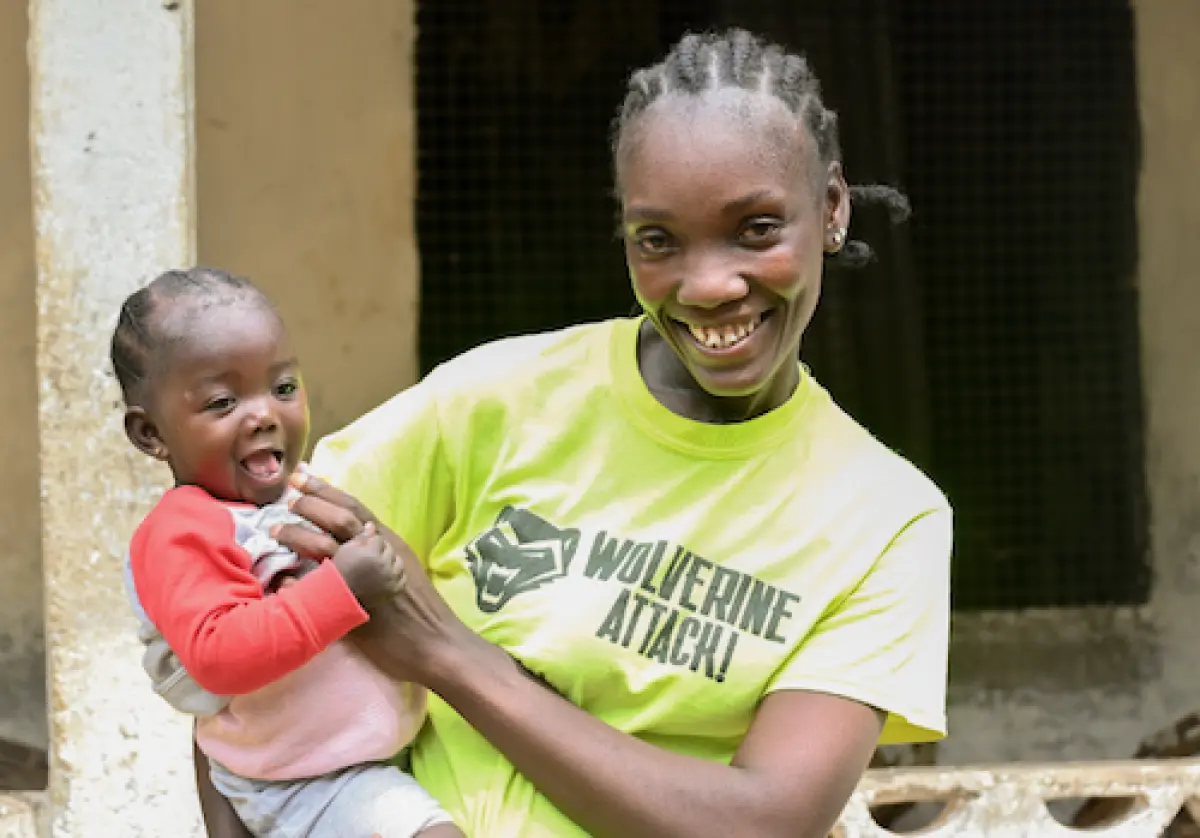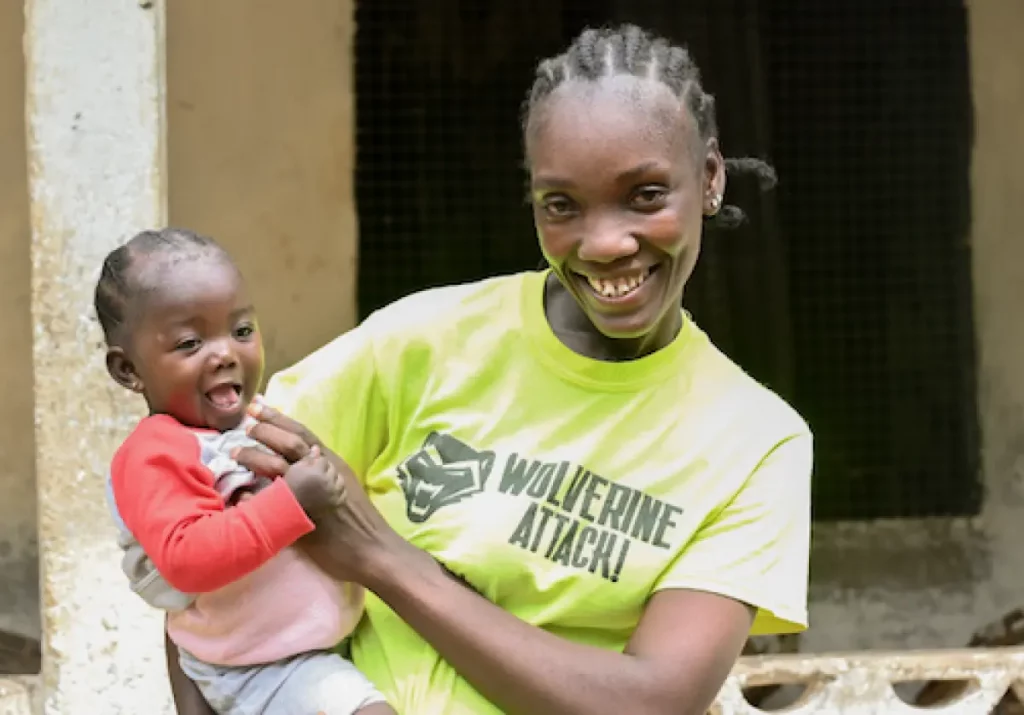Preventing Maternal Deaths Due to Tuberculosis in Liberia

PIH patient overcomes tuberculosis during pregnancies
Posted on March 25, 2022

Tuberculosis (TB) shouldn’t be ignored. This is especially true for pregnant women, as the disease can harm both mother and child. If an expectant mother is not diagnosed and treated in a timely manner, the baby can potentially contract TB—a common, but often deadly, infectious disease.
Despite efforts to identify, treat, and control TB, there are instances of misdiagnosis, as was the case for 30-year-old Rachel (pseudonym) in Liberia. Rachel was four months pregnant with her first baby in 2009 when she visited the hospital complaining of swollen feet, chills, and a fever. She experienced hallucinations too, which doctors told her was as a result of severe malaria. She was immediately admitted to the hospital and was also treated for typhoid after several tests.
For four years she received treatment at different hospitals for typhoid, a disease caused by consuming contaminated food or water. However, she continued to feel ill. Finally, she was referred to the Partners In Health (PIH)-supported TB Annex in Monrovia and was admitted after testing positive for TB. This time, she had an eight-month-old baby and had to leave the child with her sister. The standard protocol for drug-resistant TB treatment in Liberia involves taking at least 6 to 20 pills per day for 9 to 24 months. Rachel went on to receive medical treatment, as well as psychosocial and nutritional support, in the ward for two years.
According to the World Health Organization’s (WHO) 2021 Global TB report, Liberia reported about 7,000 TB patients of which 55 had drug-resistant TB. The WHO further estimated that 75% of the patients that start TB treatment will be cured or at least successfully complete the regimen. The proportion of those being cured or completing TB treatment was reported to be lower—about 70%—for patients with drug-resistant TB.
In 2018, Rachel once more began to experience symptoms of TB. “I was feeling cold on my left side. It was even hurting to bend,” says Rachel. “I went to the hospital but they refused to do an x-ray because I was pregnant.” In the same year, an estimated 3.2 million women fell ill with TB globally.
In February 2021, Rachel was diagnosed and admitted to the TB Annex for a second time; again, she was five months pregnant. She was worried about death, but the nurses comforted her by sharing the story of another woman they treated who survived. Fortunately, Rachel also responded well to treatment and was discharged to continue her treatment at home, just a week before she delivered her baby.
“I felt so happy to be home to give birth. PIH played a major role,” says Rachel, who noted the many ways PIH staff supported her. Drivers brought her to the hospital for every appointment. Staff always made sure she had food and personal hygiene products. Every Monday, they gave her beans, rice, peanut butter, tissue, and roll-on deodorant, among other items.
“I named my daughter after Drs. Rebecca and Megan (both PIH staff) because when I was in the hospital they did well for me; you don’t have a family at the hospital, but they were like family to me,” says Rachel.
In Liberia, TB prevalence has increased from 245 to 314 per 100,000 people from 2001 to 2020. PIH Liberia is working with the country’s Ministry of Health to improve care for those with TB, especially pregnant women, by increasing drug supplies in health clinics and mentoring and training clinicians. There were 260 patients with drug-resistant TB receiving treatment in the TB annex in late 2021. For patients, such as Rachel, these efforts have proved to be life-changing—for her, personally, and for her growing family.
Originally published on pih.org



